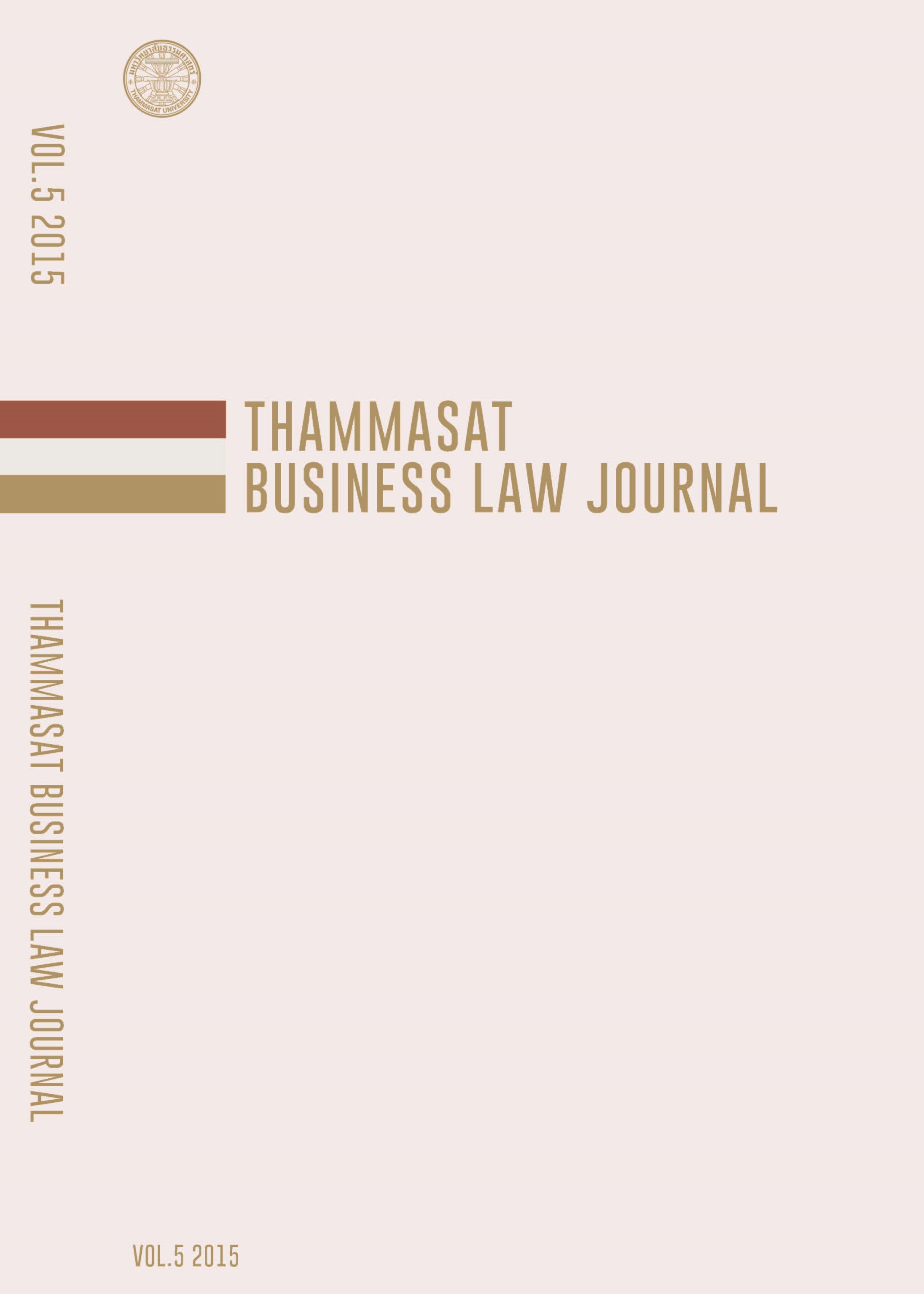PROPOSED LEGAL FRAMEWORK FOR REPO TRANSACTION
Main Article Content
Abstract
The never-ending development in financial industry has one obvious goal to initiate financial product or arrangement that provides not only wider range of accessibility to financial resources but also stronger assurance for the compliance or the remedy in case of incompliance. Generally, financial products should be equipped with cost and time saving qualities as well as reliable risk mitigation approaches. Title finance or title-based financing is a financial arrangement designed to eliminate all these problems. This arrangement offers creditors stronger assurance, since the title of the assets is collateralized in order to put the creditor in a super-priority position. This kind of financing is not new; in fact, it is of the same concept as a well-known sale with the right of redemption, title retention, financial lease, as well as factoring, securitization, and sale and lease-back agreements.
This article will introduce one interesting transaction constituted as title finance. A repurchase agreement (“repo”) is a transaction in which one party sells its securities to another in exchange for funds with the agreement that the first party will repay the funds with an additional amount in return for the equivalent in securities from the latter. The underlying purpose is not only the ownership of securities, but also the provision of funds with stronger assurance from title ownership. With its underlying nature of formal-less convenience and reliability, repo constitutes a well-established financial product that is widely used in major financial markets in a variety of developed and developing countries.
For Thailand, repo was first introduced in 1979 and has continued to be developed from merely monetary policy and liquidity management between the Bank of Thailand and financial institutions, in the structure of bilateral repo, to engagement among private sectors, as known as private repo transactions, which will be focused on this study as one interesting financial sources. However, despite constant improvements, the existing laws and regulations remain inadequate in terms of facilities in the transactions, especially on private repo transactions. The ongoing issues are both legal and policy related. Namely, the issues of dissociated definitions regarding characteristics, withholding tax matters that contradict to the underlying taxation policies, the lack of solid legal certainty that can result in ineffective enforceability, and the need of some operation systems for further improvement.
This article then provides a comprehensive study on legal approaches towards repo transactions in such leading jurisdictions as the US and EU to compare with Thailand. The analysis has been given on the mechanisms, problems, and varied resolution approaches taken by such jurisdictions to find some recommendable approaches that can possibly adapt to the situation faced in Thailand private repo transaction.
As a result, this article offers certain suggestions and guidelines to reach appropriate legal framework for private repo transactions in Thailand. Namely, to provide an assurance on validity and protection from recharacterization risk, instead of categorizing the transactions into existing principle of contract laws, repos is proposed to be recognized by its actual character as one form of financial agreement in which the title ownership is transferred to facilitate risk management. Secondly, the proposal is given to consider exempting withholding of certain types of exempted tax for private repo transactions. This tax incentive will eliminate unnecessary procedures and save costs and encourage potential participants to consider a private repo as a wider channel to financial arrangement. Third, in terms of enforcement, considering from one core purpose to create an effective and cost-saving financial arrangement and to mitigate the risks to the minimal level, the law should ensure the enforcement measures either in case of general default or the bankruptcy process, not just by selling out, but also by other practical means agreed, such as close-out or netting. Lastly, the development and improvement of repo transactions requires a great deal of cooperation by all the related parties. The support, both theoretically and practically, such as education for wide range of understanding and supporting systems should be given. The mistakes made and ways of resolving problems can be compared, learned and adopted in order to create sustainable development.
Article Details
References
Choudhry, Moorad, The Global Repo Markets : Instruments & Applications. Singapore : Wiley, 2004.
Choudhry, Moorad. The REPO handbook. 2nd ed. Oxford: Elsevier Ltd, 2010.
Wood, Philip R., Comparative Law of Security Interests and Title Finance. 2nd ed. London : Sweet & Maxwell, 2007.
วรรณรัตน์ จันทร์แสงทอง, ปัญหาทางกฎหมายเกี่ยวกับการประกอบธุรกรรมซื้อคืนหลักทรัพย์, (บทความ, จุฬาลงกรณ์มหาวิทยาลัย) (2546) Jansangtong, Wannarat, Legal Problems Concerning Repurchase Transaction, Master of Laws, Chulalongkorn University, 2003.
ศิริดาว สง่าเมือง, การศึกษาตลาดซื้อคืนพันธบัตรภาคเอกชนในประเทศไทย (การศึกษาค้นคว้าอิสระ, มหาวิทยาลัยเกษตรศาสตร์) (2552) Sangamuang, Siridow. Study of Private Repurchase Market in Thailand. Master of Economics (Business Economics), Major Field: Business Economics, Department of Economics, Kasetsart University, 2009.
Schwarcz, Steven L. & Sharon, Ori, The Bankruptcy-Law Safe Harbor for Derivatives:A Path-Dependence Analysis, 71 Washington & Lee Law Review (forthcoming), (November 12, 2013), available at http://scholarship.law.duke.edu/faculty_scholarship/3151.
Schroeder, Jeanne L. Repo Madness: The Characterization Of Repurchase Agreements Under The Bankruptcy Code And The U.C.C., 46 Syracuse L. Rev. (1996): 999-1049, available at
Bank of Thailand, “Private Repurchase Market” (January 30, 2002),
Collateral Initiatives Coordination Forum, “Collateral Fundamentals.” (2012)
Freshfields Bruckhaus Deringer LLP, “Dividend Taxation For Cross-Border Transactions.” (March 2012),
International Capital Market Association, “European repo market survey Number 28 - conducted December 2014.” (2015)
Thai Securities Depository, “User of REPO Services.” (September 15, 2010),
Directive 2002/47/EC of the European Parliament and of the Council of 6 June 2002 on Financial Collateral Arrangements
Directive 2009/44/EC amending the Settlement Finality Directive and the Financial Collateral Arrangements Directive
Notification of the Bank of Thailand No. SorNorSor 23/2551 Re: Permission for Finance Company and Credit Foncier Company to Engage in Private Repo Transaction
Notification of the Bank of Thailand No. SorNorSor 19/2552 Re: Permission for Commercial Banks to Engage in Private Repo Transaction
Royal Decree Regarding Exemption from Revenue Taxes (No.364) B.E.2542
TBMA/ISMA Global Master Repurchase Agreement Version 2000


